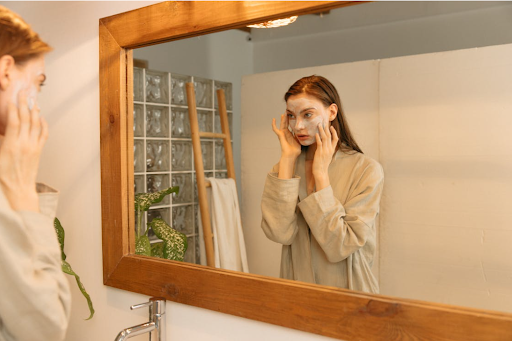Many skin care products have been developed to treat dark spots and discolorations from acne. One type of treatment that has recently gained a lot of popularity is skin pigmentation. It’s a fairly new treatment option in the world of cosmeceuticals, but it may be able to provide relief for some who suffer from acne-related pigment issues. Here’s everything you need to know about this topic and the treatment options available for your skin care regimen.
What is skin pigmentation?
Skin pigmentation is a common term that refers to discolourations from acne or other skin conditions. Brown spots and hyperpigmented areas are just two of the types of skin pigmentation that can occur. Hyperpigmentation occurs when pigment develops outside the deeper layers of the skin, like on the chest or face. Brown spots result from inflammation in the skin, as well as lightning caused by certain hormonal changes.
The most common cause of hyperpigmentation is acne. Skin pigmentation is linked to several conditions, but acne is one of the most common culprits. These dark spots are usually red or brown and can be small or large. Some people have a few isolated spots while others may have numerous discolorations across their face and body.
What are the treatment options for skin pigmentation?
The best way to reduce the appearance of acne-related pigment issues is with a combination of over-the-counter and prescription treatments. Many people will start with an over-the-counter product that contains hydroquinone, retinoids, or other lightening agents. These products can be effective, but they may take several weeks or months to see results.
Over the years, Shakura has become increasingly popular for its ability to help with skin pigmentation. Some users have also reported that their dark spots have faded away after seeking treatment from Shakura. When you go through the Shakura review, you will be able to know about the various dark spot treatments that it offers.
If over-the-counter products aren’t effective, your dermatologist may prescribe stronger retinol or hydroquinone-based cream. These products can provide faster results, but they may also cause irritation, redness, and peeling. As with any skincare product, it’s important to talk to your dermatologist before using any new product, especially if you have sensitive skin.
Chemical peels are another option for treating pigmentation issues. These peels use a combination of acids to exfoliate the skin and improve the appearance of dark spots. Chemical peels can be done at a dermatologist’s office or a spa.
What’s the best way to prevent skin pigmentation?

The best way to reduce your risk of developing pigment issues is to practise good skin care habits. This includes using sunscreen every day, even when you don’t think you’ll be spending time in the sun. UV rays can cause pigment changes, so it’s important to protect your skin even on cloudy days.
You should also avoid picking at pimples or popping them. This can lead to inflammation and further pigment changes. If you have acne, it’s important to see a dermatologist for treatment. Early intervention can help reduce the risk of pigment changes.
Skin pigmentation is a common side effect of acne. If you’re struggling with dark spots or hyperpigmentation, talk to your dermatologist about the best treatment options for your skin.

